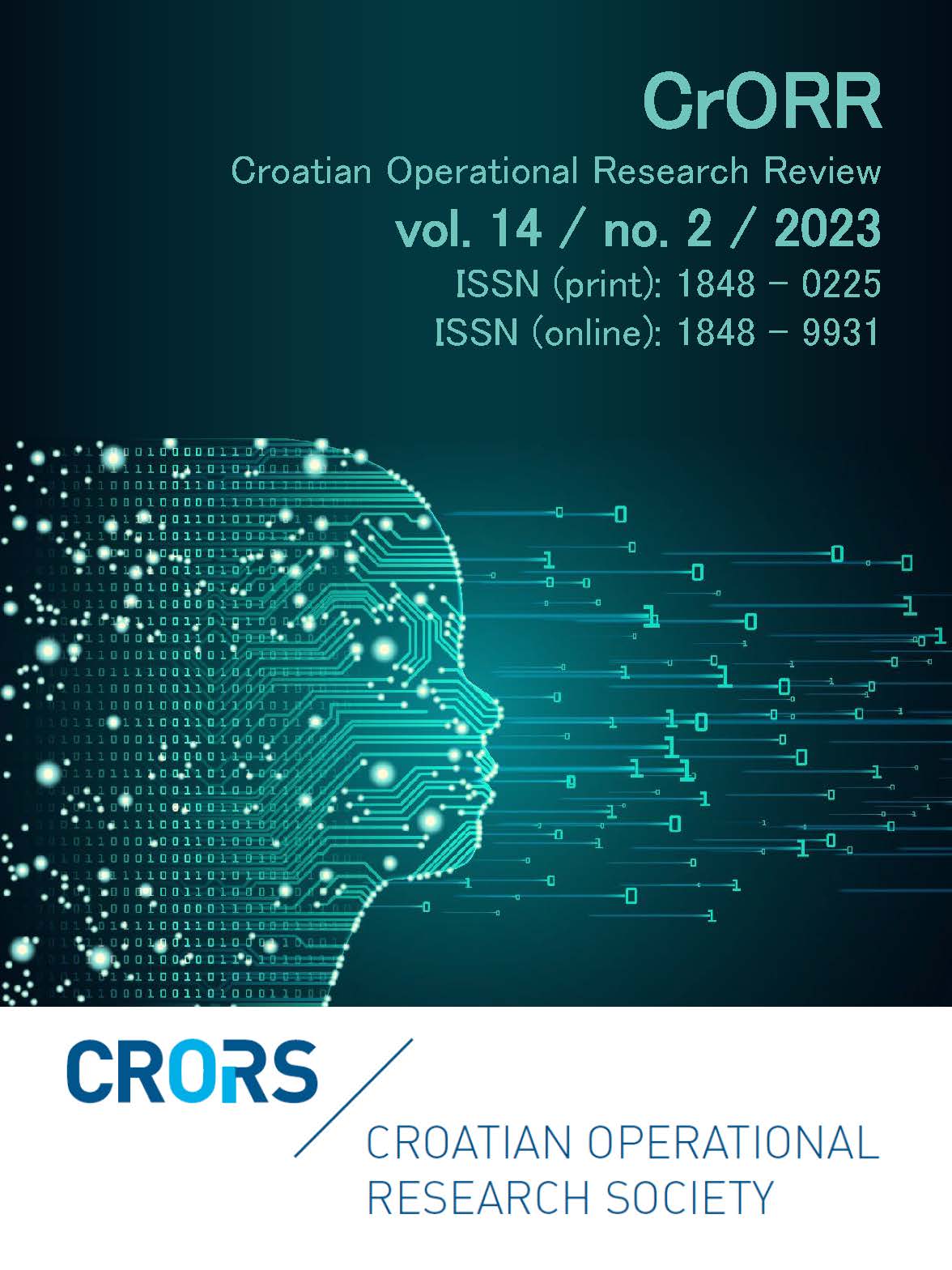Non-linear averaging-based operators of pseudo-hesitant fuzzy elements and an application
Abstract
Data modeling/aggregating, in many uncertain real-world' problems such as decision-making processes, has gotten more attention in recent years. Due to a variety of uncertainty sources, various types of fuzzy sets, and various types of averaging-based aggregation functions have been proposed. The power average operator (PAO), as a nonlinear operator, is more appropriate than other averaging-based functions for situations where different values are given on a single subject. In this paper, PAO will be extended to be used in the aggregation process of given pseudo-hesitant fuzzy elements (pseudo-HFEs), and some needed properties have been discussed, too. Then, four kinds of PAO with pseudo-HFEs, i.e., power average operator of pseudo-HFEs, power weighted average operator of pseudo-HFEs, power ordered weighted average operator of pseudo-HFEs and power hybrid average operator of pseudo-HFEs, will be defined. To solve a multi-attribute group decision-making (MAGDM) problem, the evaluation step done by both decision-makers and self-assessment will be quantified by pseudo-HFEs. Then the PAO will be applied to aggregate the row elements of the resulting decision matrix. The ranking orders of obtained pseudo-HFEs, show the options' orders. Finally, the proposed method will be used to solve a multi-attribute group decision-making problem, illustrated numerically, analyzed, and validated.
Downloads
Published
Issue
Section
License
- Authors retain copyright and grant the journal right of first publication with the work simultaneously licensed under a Creative Commons Attribution License that allows others to share the work with an acknowledgement of the work's authorship and initial publication in this journal
- Authors are able to enter into separate, additional contractual arrangements for the non-exclusive distribution of the journal's published version of the work (e.g., post it to an institutional repository or publish it in a book), with an acknowledgement of its initial publication in this journal.
- Authors are permitted and encouraged to post their work online (e.g., in institutional repositories or on their website) prior to and during the submission process, as it can lead to productive exchanges, as well as earlier and greater citation of published work (See The Effect of Open Access).


